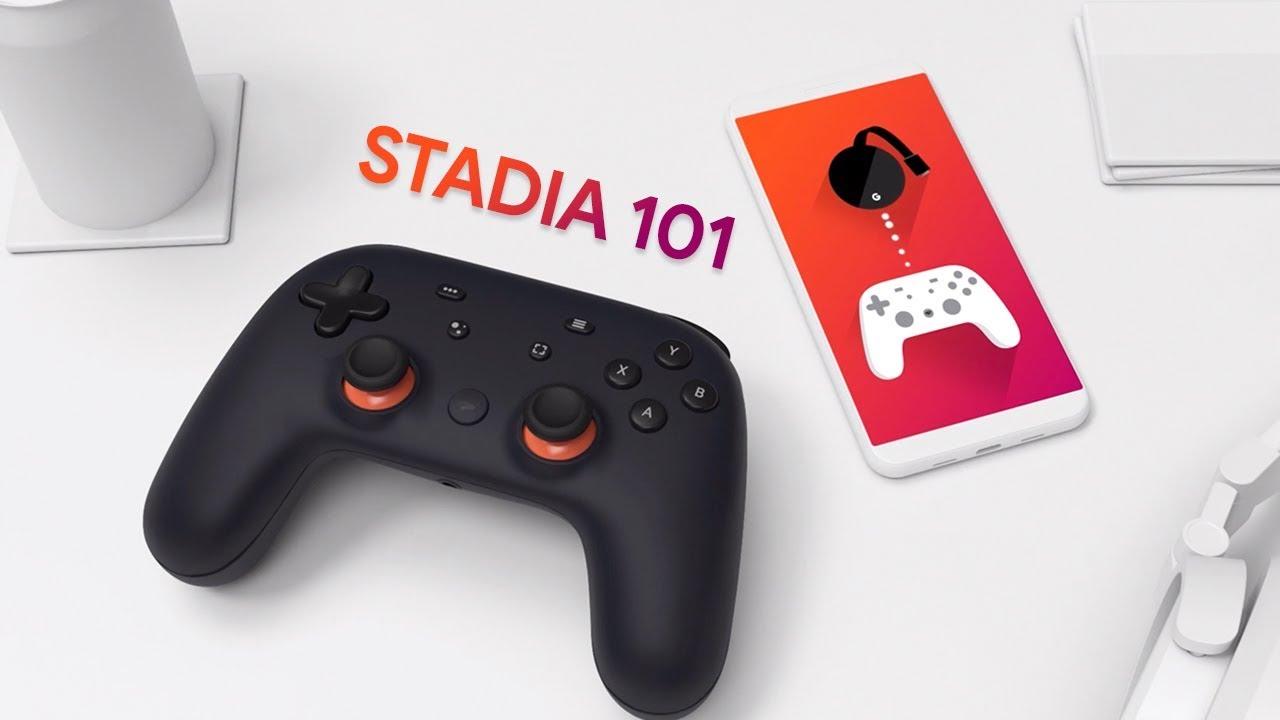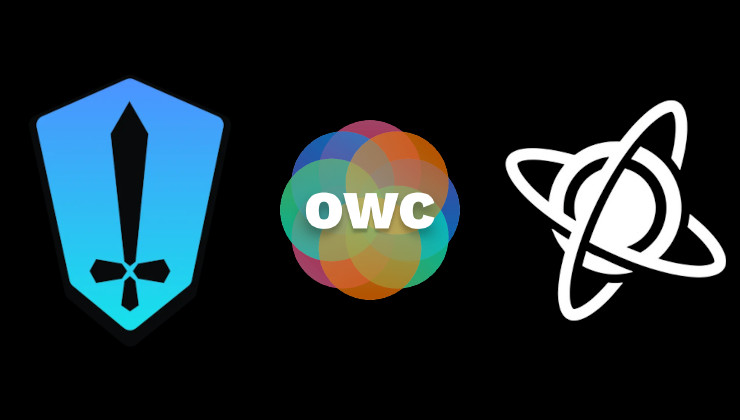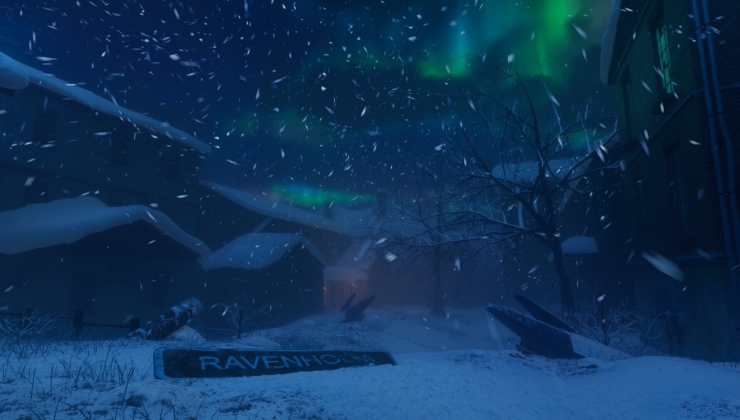Stadia, Google's new fancy Linux-powered game streaming service is officially set to launch on November 19, that is if you forked out for the expensive Stadia Founder's Edition.
In the blog post over on Google, written by John Justice the "Vice President of Product, Stadia", they mention that the Founder's Edition should start arriving on doorsteps on November 19. From then, you will be able to buy and play games beginning at 4PM UTC and it will work across devices right away (so you don't need to use that fancy Chromecast Ultra). As long as your Linux PC has a Chrome browser installed, it should work fine.
However, there's an important note included to say that they will be shipped out "in the same order that pre-orders were received". So if your country still had them available yesterday and you ordered, you're probably in for a wait. Justice said once your package ships, you will then get an email and sometime shortly after a code to activate it all.
As a reminder, while Stadia is a game streaming service it's not like Netflix since you do still need to buy the games just like you would on Steam or GOG. The "Pro" subscription at around £8.99 / $9.99 a month gives you 4K, surround sound, discounts and the occasional free game. The Base Stadia account is not a subscription but it's not free, since again you buy games.
We have a Stadia Founder's Edition ordered to cover here, so keep an eye out later next month to see what we think of it. Well, whenever our unit arrives anyway, we're probably way back in the queue due to when we confirmed our order.
Google also put out a quick overview video today too:

Direct Link
There was a note in the video that you can only use the Stadia Controller in wireless mode with the Chromecast Ultra on a TV at launch, although wired mode and other gamepads/keyboard will work fine on PC.
Apart from the launch date and the note about shipping based on the order queue, no other info was given out. They also didn't mention if anyone can buy a Stadia Pro subscription then or if everyone else just has to wait until next year when Stadia rolls out fully.
Quoting: GuestQuoting: mylkaQuoting: F.UltraQuoting: mylkaQuoting: Doc AngeloQuoting: mylkaas far as i know stadia games dont even use vulkan for windows
i hope this will change soon, or stadia is very useless for linux gaming
Stadia doesn't run Windows on the game streaming servers. They run Debian Linux.
i know, but vulkan does and games like destiny 2 use dx on windows, even if they need vulkan on stadia
Of course it does, AAA games such as this have been in development for many years before Google even announced Stadia and there is just no way that a company like Bungie would change their entire engine from DX to Vulkan in the last weeks of release. Also the XBox version is probably their main release anyway this being Bungie after all.
weeks?
stadia was announced 7 months ago and they had some games to show, so some developers already had a dev kit back then
plenty of time to use vulkan if you ask me
Modifying an entire engine, reworking all the shaders that go into it, getting familiar with a new API, all while trying to continue work on the original game, and any other games in the pipeline....even 7 months is a very short time for that.
And yes, some companies have known about this for a lot longer, and have been working at getting their games Vulkan ready during that time. There's been an immense effort poured into getting some games to work - and generally only very few developers within any given company doing it.
Just takes longer than most people might otherwise think, that's all.
destiny 2 comes with stadia.... so they have to increase their vulkan skills and they have to make their engine vulkan ready anyways
also maintaining would be a lot easier, if stadia and windows have the same API... this is a game for years, not some single player game you finish in 1 week
so i stick with my argument. vulkan would have been the better choice...
Quoting: iiariHer son needs a computer for school. She was looking at Chromebooks, but her son didn't want one since you can't game on them, and was trying to sell her on an Alienware for multiple times the cost. Add Stadia, and that Chromebook problem is solved.
Exactly! In internal report for my company I've stated, that main customers of Stadia will be parents who will explore options to buy gaming PCs for their kids. Most of the people don't think about it, but there is more to it than you just economics.
-Parents will be able to better control, both the content they kids are playing and the time.
-If the kid don't behave, parents can always cancel subscription, which gives them nice parenting tool.
-Also, there will be bunch of parents who don't want to spend 1000$ on a PC for a small kid and will start with basic Stadia. Especially, when they already got Internet-capable device.
-If the quality will be OK, they will stay there and eventually - pay for 4K resolution.
-In the long run, kid raised with Stadia will get used to it's convenience, possibility to play instantly on any device ect. Those kids won't even think to buy expensive PCs later.
Also, many people don't know anything about PC hardware and don't know what PC they need for their beloved flight simulator. Stadia will be much easier to start and don't require any investments. If it will be bad, you don't lose anything, you simply stop using it. If your 1000$ PC is bad, you've lost 1000$.
But that is all assuming, that the quality will be acceptable. That I will test next month.
Quoting: SkipperroQuoting: Liam DaweStill, not entirely sure who their market is exactly...
As someone who works in the company selling Gaming-PCs I can tell you, because I've done research about possible Stadia impact on our sales.
If you are interested, I can share the details with you, but to get the picture - if you look at the Stadia not as as a service on your PC, but as a hardware replacement, it's a great deal.
There is no PC, that would play all the games they will have in 4K for 10$ a month (360$ given average PC lifespan of 3 years). Even if I calculated all the extra costs like extra money per month for faster Internet and ignored price for electricity, it's still, from economic point of view, in the best-case scenario - the same. If you want to have a PC for the Internet browsing and games, you will spend less money buying cheap, entry level PC and Stadia subscription than a 4K capable machine.
And if you only want to play in FullHD - I cannot even compare the prices, because local PC will always cost something and Stadia is free so... divide by zero exception!
I say it over and over again in every Stadia discussion - look at it from the perspective of someone who wants to buy a new Gaming PC, because it's meant to replace hardware and compete with local, mainstream gaming rigs. From this perspective, their market seems pretty big to me.
I dunno. At the same time, people willing to spend big bucks on gaming PCs are also the ones who optimize everything to squeeze every last bit of performance out of their rigs and who throw a tantrum when their ISP has a hiccup night, giving them an extra 2ms of lag. Why would these people want a service that's -guaranteed- to perform worse than their Alienware PC?
Likewise, casual players tend to not care about 4K and a few extra FX effects on their games. There are by far the the biggest slice of the market, and they happily play games on low-end machines that don't break the bank enough to warrant signing up to a streaming service ON TOP of owning a PC to run Office on etc.
On top of that, Moore's Law is (mostly) dead, and PCs last much, much longer than they used to. When in the 1990s you had to replace a PC every other year to continue playing recent games, you can now keep a gaming PC for 4 to 6 years and STILL play the newest games with (most) effects enabled. Which cuts the annual cost of owning a gaming PC down but a fair margin.
I suppose you guys put a lot more thought into this than me, but to me, game streaming still seems to be an equal opportunity offender without any clear target audience.
Quoting: Skipperro...but there is more to it than you just economics.As a (deeply conflicted gamer) parent of two young girls who just now are starting to show interest in gaming and wanting to that independently from me, these are huge factors I've considered and it's possible Stadia will be the first service I introduce them to, on their Linux devices of course :).
-Parents will be able to better control, both the content they kids are playing and the time.
-If the kid don't behave, parents can always cancel subscription, which gives them nice parenting tool.
I actually think the bigger future threat to your company, though, is still the next generation's love affair with mobile. My kids, for example, love Minecraft, and prefer to play it on mobile phones to computers with big monitors... They just love the touchscreen UI and want absolutely nothing to do with mice or keyboards. Flight sims might change that soon for my older daughter, though... BTW, if anyone has educational or coding game recommendations on Linux beyond GCompris, please PM me...
Quoting: SkipperroAlso, many people don't know anything about PC hardware... Stadia will be much easier to start and don't require any investments. If it will be bad, you don't lose anything, you simply stop using it. If your 1000$ PC is bad, you've lost 1000$.All also absolutely true...
BTW, I think one way forward for gaming hardware makers is embrace that future and try to optimize as much as possible the streaming performance on their machines. The day will come when having top-draw networking, memory, and GPU's will result in a difference gaming experience on, say, a Chromebook than what someone will have with a dedicated gaming rig... That MS 2020 Flight Sim streams its scenery, but still had machines there with 2080Ti's to make it all work in 4K. Companies like yours should try to make that purchasing experience as easy, understandable, and up-gradable as possible.
Last edited by iiari on 16 October 2019 at 3:05 pm UTC
Well, partially true - high-end sector probably won't be affected by Stadia (at least for next 10 years), as there is a group of people, that want to play in 144 FPS, they know their PCs well, customize them, have water-cooling ect. In fact - our strategy to stay relevant in the future is to shift more into those high-end needs and offer a unique, custom, work-of-art PCs.
Lag... will have to test it, but if you believe Goggle's marketing team - compared to current consoles, it could actually be lower. It's technically possible. Don't forget that frame processing also takes time. Even mouse connected to your PC have about 12 ms lag.
Moore's Law ending... this is the reason why in the long run (10+ years) streaming will have massive advantage over desktop PCs. Right now all the big players like Microsoft, NVIDIA and Google knows, that current way of computing stuff in a small tower case it at its limits. If you want to have a game, that have hundreds of enemies (or players) at once in one place and simultaneously offers photo-realistic graphic, you won't be able to do it on a single CPU. Forget it. Your only option is a server cluster running massively multi-threaded API like Vulkan, using branch predictions (calculating possible frames before user input) and other advanced techy-stuff.
That's why Microsoft have their streaming service, Sony and NVIDIA too. They all already look for the 10 years+ future and they all see the same. If we want more complex, prettier games, streaming is not the best way - it's the only way.
You will soon start to see games, that are designed for Stadia and will run only as a streaming with no local version available, because of technical reasons.
Last edited by Skipperro on 16 October 2019 at 3:05 pm UTC
Quoting: SkipperroIf we want more complex, prettier games, streaming is not the best way - it's the only way.Couldn't agree more....
Quoting: SkipperroIf you want to have a game, that have hundreds of enemies (or players) at once in one place and simultaneously offers photo-realistic graphic, you won't be able to do it on a single CPU. Forget it. Your only option is a server cluster running massively multi-threaded API like Vulkan, using branch predictions (calculating possible frames before user input) and other advanced techy-stuff.
That's a truly good point! For some games, even modern day computing power won't be enough, and I guess the only way that kind of game can be realized is by it running in a cloud. Microsoft's Flight Simulator is a good example of that already happening.
My counterpoint to that would be that there is no reason for EVERY game to be cloud hosted. While a photo-realistic flight simulator has to be, Stardew Valley profits exactly not at all from being remotely hosted. Cloud hosted gaming isn't exactly a new thing anyway. My favorite genre is MMORPGs, and these have been remotely hosted even back in the days when they didn't re-brand the thing we used to call a cluster-server to "cloud". I think you're totally right that we're going to see more and more cloud-based games actually making USE of the cloud other than just being a DRM scheme. But while games like MS Flight might do that, streaming these games in their entirety is not a necessity, still. Personally I foresee more a future that will use the cloud for performance-heavy operations and let the local client process what makes sense to do there, which is probably the best of both worlds. That's what MS Flight is doing, after all.
Time will tell, I guess.
Quoting: iiariThey do seem to have this approach along the lines of "Build it and they will come, and then we'll, um, monetize it somehow." Then when it works, it works big, and when it doesn't, they fold the tent.Quoting: [email protected]It's not the Netflix of gaming. You don't get a catalog of games to deal with.That was my point, it wont' be the Netflix of gaming, which I think was a huge opportunity lost. As I posted above, I'm really surprised for how great the tech is that Google isn't being more aggressive with positioning this, because I think they're only, say, 85% confident in the tech status right now, not 100%. And as a long time Google fan and purchaser, they're honestly terrible at marketing and positioning their products...
You still have to buy your games on Stadia. Stadia simply helps offload it off the hardware.
From a consumer perspective this can be good and bad. Seems like sometimes the answer comes back, "Looks like we have a way to monetize this, but it's pretty evil." and the response is "Oh well, pity we have to do that, but the next cool product won't make itself." So where say Microsoft in the old days was pretty much based on the model "Plan and commit evil acts to profit", Google may stumble into evil at times precisely because it doesn't have a plan outside the technology itself.
I may be way off base, this is just an impression.
Quoting: iiariI actually think the bigger future threat to your company, though, is still the next generation's love affair with mobile. My kids, for example, love Minecraft, and prefer to play it on mobile phones to computers with big monitors... They just love the touchscreen UI and want absolutely nothing to do with mice or keyboards.The younger generation may well move away from dinky little screens as they, and more specifically, their eyes, get older. I've always felt doing much gaming on phones is a recipe for eyestrain.
We may see stuff to let them have a UI similar to a phone one while still using a bigger screen. Either big touchscreens or, hey, maybe you could do a dual screen setup where one screen is a small touchscreen, or even your phone itself, which you use for UI control, while actual documents, games etc. show on the big screen/s.
Quoting: DesumOh goodie. The ultimate DRM and censorship scheme. I'm so excited this is being warmly received because the servers happen to be running on Linux.
i'm worried about DRM and censorship too, but lets take it easy for now.
just remember that chromeOS was online only too when it launched, i think stadia is just an temporary solution until they can get more marketshare for their chromeOS, then they will be able to entice more developers to add offline capabilities too.
actually, chromeOS may be the reason why they are doing stadia anyway, its the only way to make it grow, without games it would strugle to grow otherwise.
also, i'm pretty sure that sony or microsoft will attack that disadvantage that stadia has to attack it, so they will have to respond.
also: onlive is not alive anymore, not because the company was bankrupt but because they where acquired by sony to use their technology on psnow...
lets just remember that before they shut down their servers they offered the option to download your games from they. (cloud lift)
in any case.
be the future an utopy or an distopy, there is NOTHING we can do about it.
Last edited by elmapul on 18 October 2019 at 7:18 am UTC







See more from me